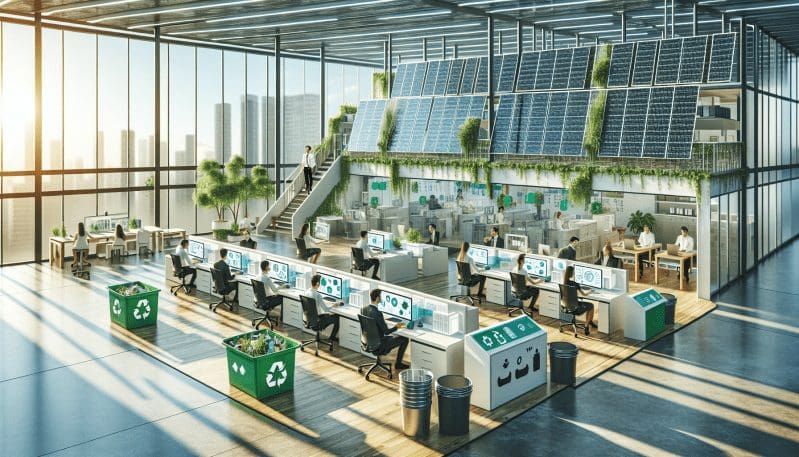The modern workplace is no longer just a physical space where employees congregate to complete their daily tasks. It is evolving into a dynamic environment that embodies a company’s values and commitment to sustainability. As an experienced Environmental/Sustainability Expert, I have witnessed first-hand the transformative power of technology in redefining the very essence of workspaces. The exciting synergy between technological prowess and sustainable practices is crafting eco-friendly workplaces that are not only efficient but also future-proof against environmental challenges.
The advent of green building design is a testament to the innovative application of technology in office construction and management. Smart buildings, equipped with sophisticated systems, can monitor and adjust energy consumption in real-time, ensuring that lighting, heating, and cooling are optimized for both comfort and conservation. Materials chosen for construction are sourced for their low environmental impact and high performance, ensuring that the building itself becomes a beacon of sustainability.
Energy-efficient office equipment has also become a staple in the eco-conscious workspace. From LED lighting to ENERGY STAR-rated appliances, these advancements are reducing the carbon footprint of daily operations. The integration of solar panels and the use of renewable energy sources further reduce reliance on fossil fuels, signaling a shift towards a more sustainable energy paradigm within the workplace.
The digital revolution has introduced a host of tools that support remote work and collaboration. Cloud computing, video conferencing, and project management software reduce the need for commuting, thus decreasing greenhouse gas emissions and contributing to improved air quality. Furthermore, the rise of a digital workforce has prompted a reevaluation of traditional work models, leading to flexible and remote working arrangements that are not only eco-friendly but also enhance work-life balance.
Another area where technology is making strides is in waste reduction. Advanced recycling systems, composting facilities, and digital documentation are minimizing the environmental impact of workplace waste. By leveraging these technologies, companies are not only reducing their ecological footprint but also setting a standard for responsible waste management.
However, technology does not only support current sustainability efforts—it also aids in future-proofing operations against environmental risks. Climate change and resource scarcity are looming threats that can disrupt business continuity. By investing in resilient infrastructure and adopting sustainable practices, companies can mitigate these risks and ensure operational longevity.
Moreover, the emergence of data analytics and AI is providing companies with the tools to track and analyze their environmental impact with unparalleled precision. These insights allow for the constant refinement of sustainability strategies and the setting of tangible, achievable goals.
In conclusion, the intersection of technology and environmental sustainability is carving out a new paradigm for workplaces. As we look to the future, we envision spaces that not only foster productivity and innovation but also operate harmoniously within our natural world. Companies that embrace these technological solutions are setting a new standard for the workplace of tomorrow—a place where environmental stewardship is not just a policy but a lived, integral part of the daily work experience.
As The Work Times continues to delve into the nexus of work, worker, and workplace, we remain committed to highlighting the role of technology in forging eco-friendly workplaces. The future beckons with the promise of sustainability, and it is a call that we must heed with the tools and intellect at our disposal.

























